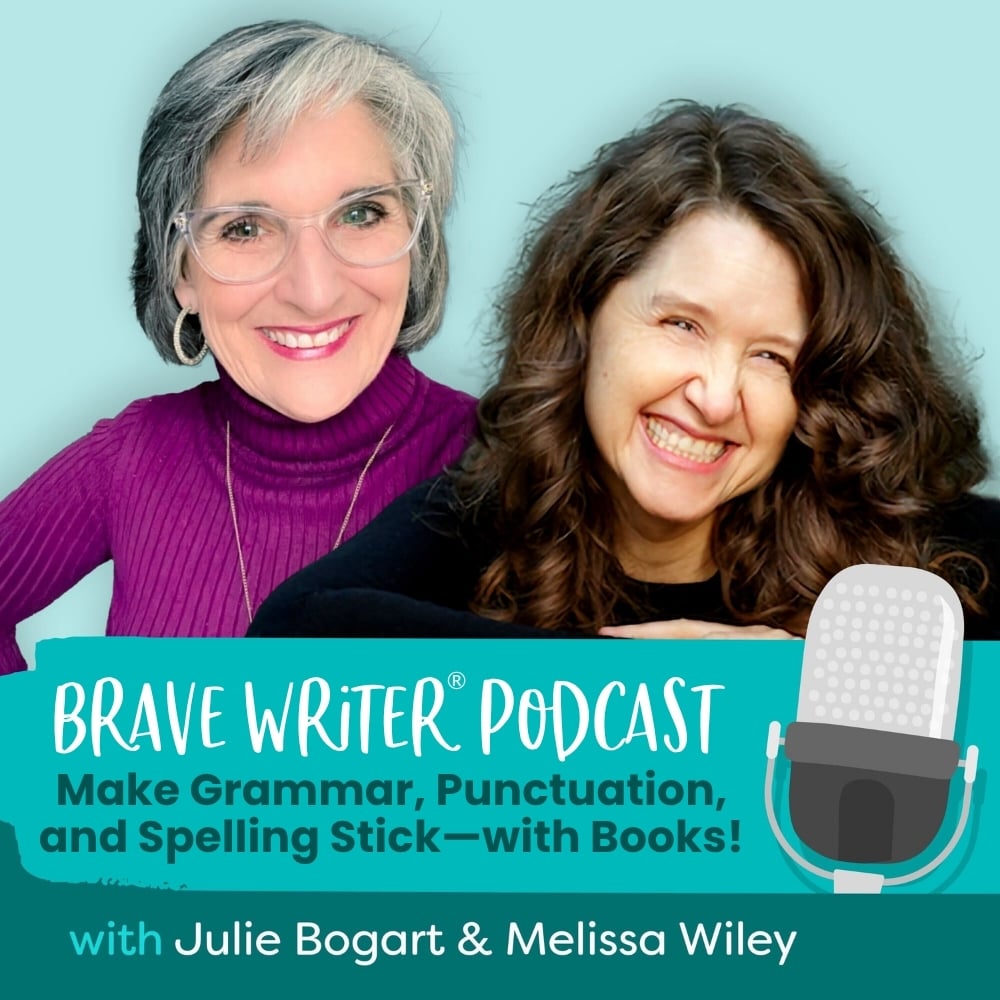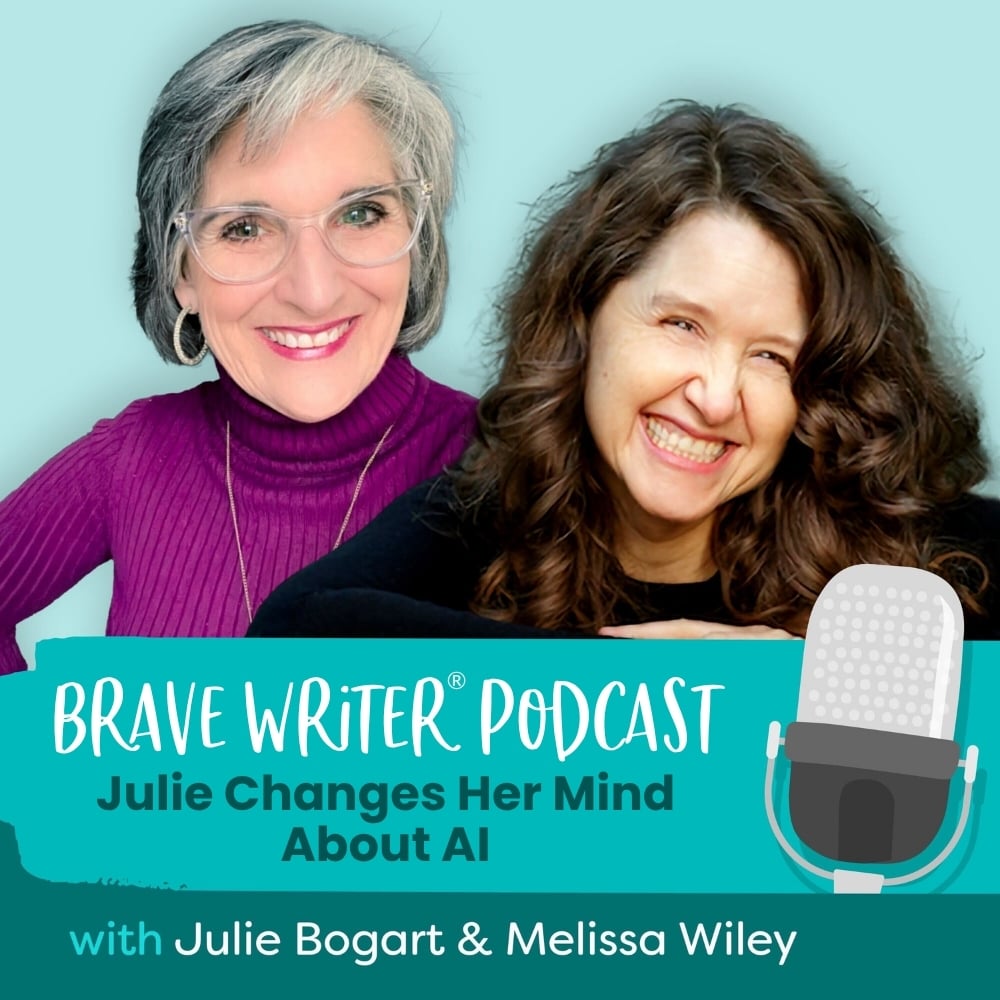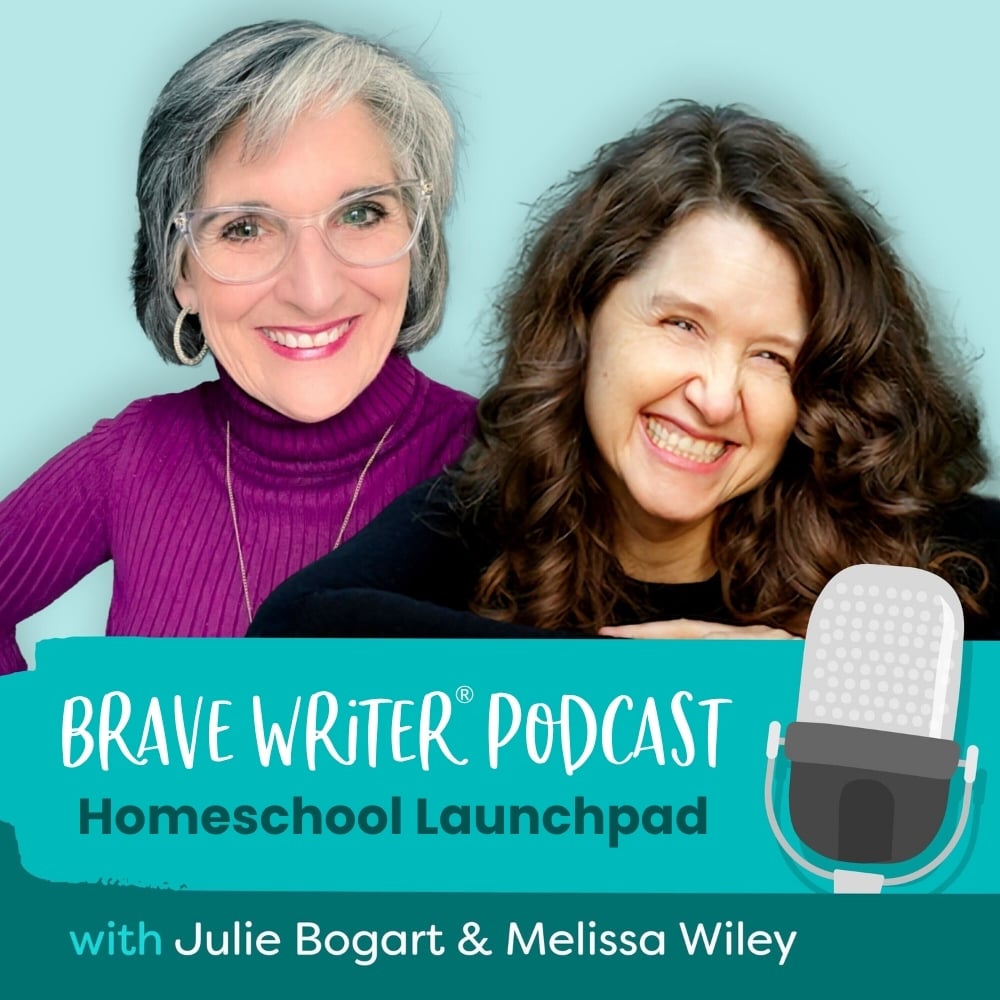
Do you ever wonder why some learning experiences “stick” while others fade away?
In this Brave Writer podcast episode, we explore how grammar, punctuation, and spelling can come alive through brief, meaningful conversations and playful discovery—far from the world of endless worksheets.
We discuss:
- the power of “quick dips” in learning,
- the magic of using favorite books as a playground for curiosity,
- and the importance of connection in helping knowledge grow naturally.
By making room for authentic curiosity and everyday conversations, we can nurture a love of language that lasts. Tune in for practical ideas and a refreshing perspective on making language arts meaningful at home.
Show Notes
Learning Happens in Relationship
At the heart of meaningful learning is relationship. Our children learn not only through materials but through the time and attention we offer them. Just as they picked up skills like eating with utensils or brushing their teeth through countless small interactions—not formal lessons—so too can they absorb the mechanics of writing and language. These “two-minute drills” scattered throughout the day do more than you might think, laying a foundation that lasts a lifetime.
Quick Dips Over Deep Dives
There’s a common belief that mastery comes from hours of drills or intensive lessons, especially in subjects like grammar. But research tells us that a child’s attention span is, at best, their age plus a minute. The magic often happens in “quick dips”—short, focused bursts of conversation and discovery. Two minutes spent discussing a comma, an unusual word, or the punctuation in a favorite book passage can be far more effective than an hour spent on worksheets. These brief but regular dips build knowledge naturally, bit by bit, making learning feel less like a chore and more like an adventure.
Using Literature as Our Playground
When we use books our children love as the starting point, we transform grammar and punctuation from abstract concepts into meaningful experiences. Every passage in a book—whether chosen at random or with purpose—becomes a treasure trove of questions: What words stand out? What punctuation marks shape the meaning? What mood does this passage create, and how does the author achieve that? We invite our children to notice, to wonder, and to play detective with language. Even a disliked passage can become a “level up” challenge in critical thinking!
Authentic Curiosity Fuels Growth
Children are naturally driven to explore the things that interest them. When learning feels personal, they are willing to push through challenges, take breaks and return, or even ask for help when needed. The same persistence and creativity they use to master skills like roller skating or coding can be harnessed for language, spelling, and writing—if we let curiosity lead the way.
Every Conversation Counts
We don’t need to save our best questions for “school time.” Discussions about language can happen at the dinner table, during car rides, or while brushing teeth. The aliveness of these moments—their spontaneity, their relevance to our actual lives—helps make learning meaningful and memorable. Instead of seeking out the perfect program, we focus on building a family culture where books, words, and ideas are woven into our days.
The Brave Writer Approach
Our mission is to support families in bringing this kind of living, connected learning to life. Through our programs and resources, we offer not just content, but discussion questions and strategies to turn any book, passage, or even billboard into a learning opportunity. The goal isn’t to produce perfect grammar for the sake of a test, but to help our kids discover how language creates worlds, sparks imagination, and gives voice to who they are.
Let’s keep looking for the moments when learning feels alive—and trust that it’s in these small, joyful interactions that true understanding is born.
Resources
- Sign up for our free Brave Writer Summer Camp!
- Don’t miss the replays of our confetti-filled book reveals that kick off a year of reading, learning, and connection! Tune in here: bravewriter.com/landing/book-reveal
- Purchase Julie’s new book, Help! My Kid Hates Writing!
- Check out Julie’s new author website: juliebogartwriter.com
- Subscribe to Julie’s Substack newsletters: Brave Learning with Julie Bogart and Julie Off Topic
- Try out our Brave Writer Practice Pages
- Learn more about the Brave Writer Literature & Mechanics programs
- Read all Brave Writer class descriptions
- Start a free trial of CTCmath.com to try the math program that’s sure to grab and keep your child’s attention
- Sign up for our Text Message Pod Ring to get podcast updates and more!
- Send us podcast topic ideas by texting us: +1 (833) 947-3684
Connect with Julie
- Instagram: @juliebravewriter
- Threads: @juliebravewriter
- Bluesky: @bravewriter.com
- Facebook: facebook.com/bravewriter
Connect with Melissa
- Website: melissawiley.com
- Substack: melissawiley.substack.com
- Instagram: @melissawileybooks
- Bluesky: @melissawiley.bsky.social
Produced by NOVA






















